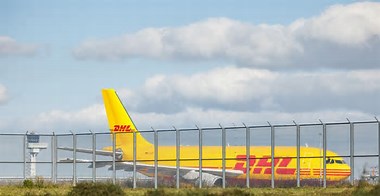A series of suspicious parcel fires at courier facilities across Europe were Russian intelligence “dry runs” designed to test methods for sabotaging flights to North America, Polish prosecutors revealed Monday.

Prosecutor Katarzyna Calow-Jaszewska announced that authorities have arrested four people in connection with the incidents, which targeted facilities in Poland, Germany, and the United Kingdom. Western security officials told media outlets they believe Russia’s military intelligence agency, the GRU, orchestrated the campaign.
The fires, which occurred over three days in July, broke out in facilities including a DHL cargo terminal in Leipzig, Germany, a transport company near Warsaw, and a warehouse in Minworth, UK. Officials believe the blazes originated from electric massage machines containing difficult-to-extinguish magnesium-based substances.
“The group’s goal was also to test the transfer channel for such parcels, which were ultimately to be sent to the United States of America and Canada,” Calow-Jaszewska said. German intelligence chief Thomas Haldenwang noted it was “only by a stroke of fortune” that the Leipzig device hadn’t ignited mid-flight.
The packages reportedly originated from Lithuania, where parliamentary security committee chairman Arvydas Pocius described them as part of ongoing hybrid attacks aimed at “causing chaos, panic and mistrust.” DHL has since enhanced security across its European network.

MI5 Director Ken McCallum recently cited these incidents as examples of Russian agents conducting “arson, sabotage and more. Dangerous actions conducted with increasing recklessness” following UK support for Ukraine. Russia denies involvement but faces accusations of other attacks on European infrastructure, including incidents in Sweden and the Czech Republic.
Poland’s response includes closing a Russian consulate in Poznan, with Foreign Minister Radoslaw Sikorski threatening to expel the Russian ambassador unless the attacks cease. Russia’s foreign ministry warned of a “painful response” to these “hostile” actions.
The investigation has prompted increased scrutiny of international shipping security, with courier companies implementing enhanced screening measures for suspicious packages.



